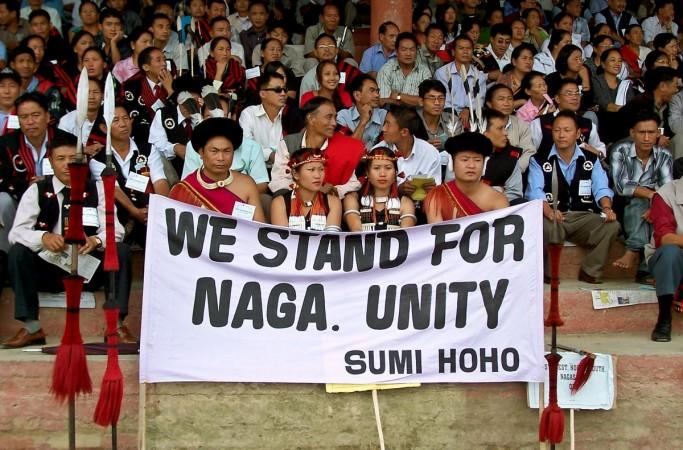
As the ambitious Naga peace talks reach the final stage, civil society representatives and a top politician in Nagaland have said that the assembly polls, due in March 2018, could get pushed back as an interim government gets into the saddle after the accord is signed.
Many expect a final solution to the six-decade-long Naga conflict by the end of 2017. An interim government, it is said, will help in adjusting and stabilising the administrative and political system in the state, which may get some political autonomy as part of the overall solution.
"If the Naga solution comes before the assembly election then there will be an interim government for a brief period as many things will be happening and things will fall into place. And then, only later on can we talk about the next elections," Neiphiu Rio, former Nagaland Chief Minister and current Lok Sabha member from the state, told IANS.
Stating that the Naga people want a settlement at any cost, Rio stated that he himself had repeatedly said in parliament that the central government should pursue the talks and the settlement should come before the assembly elections.
According to a former Chief Election Commissioner (CEC), state polls can be delayed only through a special request, which is possible in the case of Nagaland due to the Naga Framework Agreement.
"The Election Commission cannot postpone the elections on its own, until a special request is made by the party (the Centre and State). This is usually done when there are natural calamities and law and order issues. However, in the case of Nagaland, where negotiations are going on, a special request can be made before the assembly's term gets over," former CEC H.S. Brahma told IANS.
Civil society groups such as the powerful Naga Hoho and Eastern Nagaland's People Organisation (ENPO) have clearly stated that if the government wants to find an amicable solution in Nagaland, it has to be before the next assembly elections.
Some go to the extent of saying that the Nagas themselves would conduct the next elections.
"As of now we don't expect another Indian election to happen in Nagaland. During the recent visit of Naga Peace Talks interlocutor R.N. Ravi to Nagaland, we have clearly told him that if the Government of India is willing to make any amicable solution, then it has to be before the next assembly elections," Naga Hoho President Chuba Ozukum told IANS.
According to Ozukum, holding the assembly elections without finding a solution to the Naga issue will create a lot of problems.
"We cannot continue the peace process forever. Peace talks for 20 years are more than enough. The people aren't comfortable, we are becoming restless," said Ozukum, adding that if a political solution was not found before the assembly elections, the Naga people will themselves decide what is to be done.
The assembly elections will be the first after the Naga Framework Agreement was signed on Aug 3, 2015.
The agreement, inked between the Nationalist Socialist Council of Nagalim (Isak-Muivah) -- the biggest and most powerful faction of NSCN -- and the Centre is an attempt to find a final settlement to the vexed Naga issue.
Initially about sovereignty, the demand is now for a Greater Nagalim by integrating the Naga-inhabited areas of Manipur, Arunachal Pradesh and Assam.
Khoiwang Konyak, President of the ENPO, said it was a time to wait and watch.
"Basically, the Naga people are waiting and observing what will come first, a solution or an election. If the election comes first then we will join the election, but if the solution comes before, we will go for it and support it fully," Konyak told IANS.

















